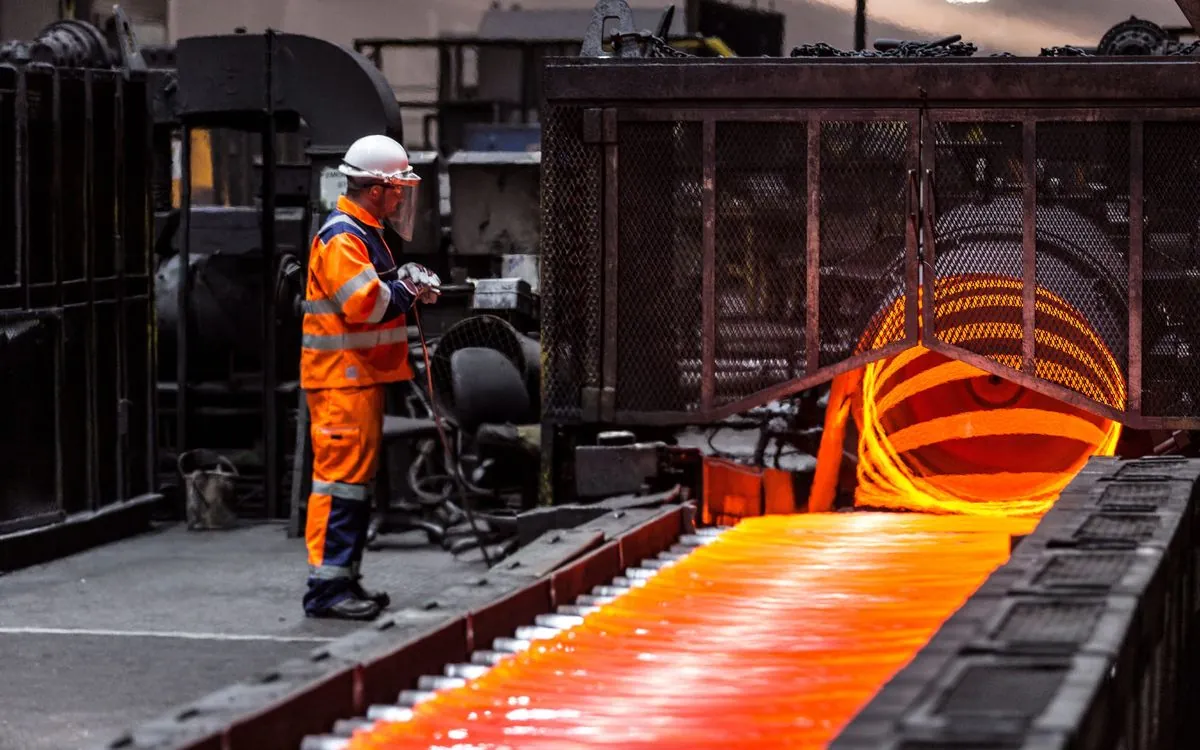UK Steel Industry at Risk: Labour's Inaction Threatens Jobs and Security
2,500 steel jobs in Scunthorpe face potential cuts by year-end. Labour government criticized for neglecting industry support, raising concerns about economic stability and national security implications.

The UK steel industry faces a critical juncture as reports suggest British Steel may cut 2,500 jobs at its Scunthorpe plant by the end of 2024. This development has sparked widespread concern not only for the affected workers and their families but also for the nation's economic stability and security.
The steel sector in the UK has weathered numerous challenges since the 1970s, grappling with global competition and economic shifts. Despite these hurdles, the previous Conservative government had implemented measures to safeguard and modernize the industry. Their efforts included collaborating with Ben Houchen, the Conservative mayor of Tees Valley, to transform the former Redcar steelworks into a modern electric arc furnace facility. This initiative, which received planning consent earlier this year, aimed to revitalize steel production while embracing more environmentally friendly technologies.

However, the current Labour government's approach to the steel industry has come under scrutiny. Critics argue that despite pre-election promises to support steel production, Labour has remained silent on the issue since taking office. Instead, the government has prioritized other matters, such as negotiating with trade unions and reviewing major infrastructure projects. This shift in focus has created uncertainty regarding future demand for steel and the raw materials needed for production.
"Labour promptly found £10bn in public sector pay to appease the trade unions, but have been slow to finalise a £1bn package needed to secure the future of domestic steel production."
The importance of maintaining a robust domestic steel industry cannot be overstated. Steel is crucial for various sectors, including construction, automotive, and defense. The UK steel industry directly employs approximately 33,000 people and supports an additional 40,000 jobs in the supply chain. Losing this capability could have far-reaching consequences for the nation's economic independence and security.
One significant concern is the potential increased reliance on steel imports, particularly from China. China, which became the world's largest steel producer in 1996, now accounts for over 50% of global steel production. However, the UK's relationship with China has been strained due to cyber attacks and actions perceived as undermining democracy and the rule of law.
The National Security Bill, introduced in 2022, aimed to strengthen protections against hostile state actors. However, if domestic steel production collapses, it could give China greater influence over the UK's economic well-being and potentially compromise national security.
As the situation unfolds, calls for government action grow louder. The steel industry joins a list of sectors, including pensioners facing changes to winter fuel payments and communities affected by ongoing rail strikes, that feel let down by unfulfilled promises. The opposition urges the government to step up and address these critical issues, emphasizing the need to protect both jobs and national interests.
The coming months will be crucial for the UK steel industry's future. As stakeholders await concrete action from the government, the fate of thousands of workers and the nation's industrial capability hangs in the balance.


































